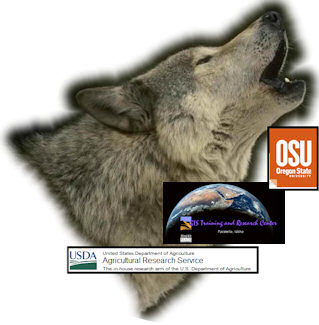
Understanding Sheep and Livestock Guardian Dog Interactions Relative to Simulated Predatory Stimuli
ObjectivesWith the success of various wildlife reintroductions and the expanding range and distribution of predators, sheep producers in the west are faceing increasing risk of livestock depredation. One relatively common solution has been to use livestock guardian dogs (LGDs) to deter predators from attacking and killing sheep. LGDs have been bred for millennia to protect livestock from predators and are effective. However, some producers question whether the presence of predators, regardless of the presence of LGDs, causes increased vigilance activity by their livestock, which may subsequently lead to lower productivity and increased stress.
In this study, we examined the differences in the behavior of sheep in the presence/absence of LGDs. Individual behaviors as well as flock cohesiveness over time was characterized and compared.